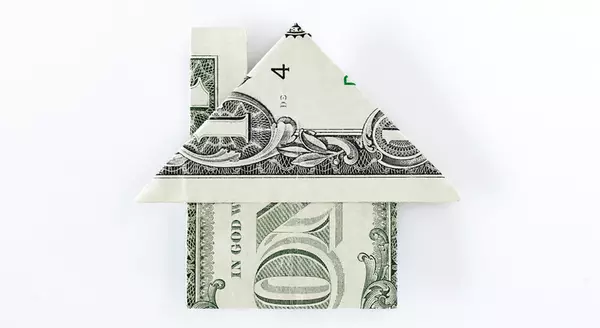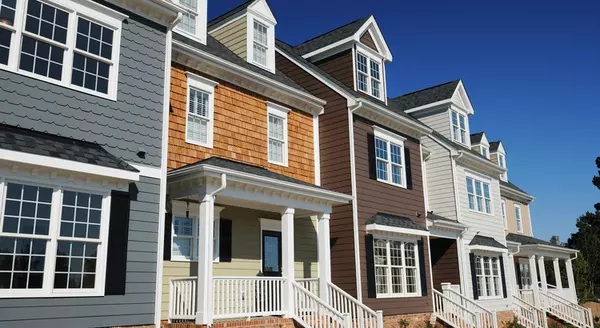EPIQUE NEWS LIVE

Why Some Homes Sell Faster Than Others
Why Some Homes Sell Faster Than Others
As you think ahead to your own move, you may have noticed some houses sell within days, while others linger. But why is that? As Redfin says:“. . . today’s housing market has been topsy-turvy since the pandemic. Low inventory (though rising) and high prices have created a strange mix: Some homes are
MORE
Stocks May Be Volatile, but Home Values Aren’t
Stocks May Be Volatile, but Home Values Aren’t
With all the uncertainty in the economy, the stock market has been bouncing around more than usual. And if you’ve been watching your 401(k) or investments lately, chances are you’ve felt that pit in your stomach. One day it’s up. The next day, it’s not. And that may make you feel a little worried ab
MORE
The 20% Down Payment Myth, Debunked
The 20% Down Payment Myth, Debunked
Saving up to buy a home can feel a little intimidating, especially right now. And for many first-time buyers, the idea that you have to put 20% down can feel like a major roadblock.But that’s actually a common misconception. Here’s the truth.Do You Really Have To Put 20% Down When You Buy a Home?Unl
MORE
Your Home Equity Could Make Moving Possible
Your Home Equity Could Make Moving Possible
Some HighlightsThanks to recent home price appreciation, homeowners have near record amounts of equity – and you may too. On average, homeowners have $311K worth of equity.Once you sell, you can use it to fund your down payment on your next home or maybe even to buy a smaller house in cash. If you w
MORE
What an Economic Slowdown Could Mean for the Housing Market
What an Economic Slowdown Could Mean for the Housing Market
Talk about the economy is all over the news, and the odds of a recession are rising this year. That’s leaving a lot of people wondering what it means for the value of their home – and their buying power.Let’s take a look at some historical data to show what’s happened in the housing market during ea
MORE
A Tale of Two Housing Markets
A Tale of Two Housing Markets
For a long time, the housing market was all sunshine for sellers. Homes were flying off the shelves, and buyers had to compete like crazy. But lately, things are starting to shift. Some areas are still super competitive for buyers, while others are seeing more homes sit on the market, giving buyers
MORE
Why Today’s Foreclosure Numbers Aren’t a Warning Sign
Why Today’s Foreclosure Numbers Aren’t a Warning Sign
When it feels like the cost of just about everything is rising, it’s only natural to wonder what that means for the housing market. Some people are even questioning whether more homeowners will struggle to make their mortgage payments, ultimately leading to a wave of foreclosures. And recent data sh
MORE
Paused Your Moving Plans? Here’s Why It’s Time To Hit Play Again
Paused Your Moving Plans? Here’s Why It’s Time To Hit Play Again
It’s not really a surprise that 70% of buyers paused their home search last year. Maybe you were one of them. And if so, no judgment. Conditions just weren’t great.Inventory was too low, prices were too high, and mortgage rates were bouncing all over. That made it really hard to find a home you love
MORE
You Finally Have More Options for Your Move
You Finally Have More Options for Your Move
Some HighlightsIf you put your home search on hold because you couldn’t find anything you liked in your budget, it’s time to try again. There’s a much wider selection of homes for sale, with more fresh listings hitting the market each month.With more options come more possibilities. Connect with an
MORE
Should I Buy a Home Now or Wait?
Should I Buy a Home Now or Wait?
At some point, you’ve probably heard the saying: “Yesterday was the best time to buy a home, but the next best time is today.”That’s because homeownership is about the long game – and home prices typically rise over time. So, while you may be holding out for prices to fall or rates to improve, you s
MOREWhat’s Your House Worth Now? The Answer May Surprise You
What’s Your House Worth Now? The Answer May Surprise You
Let’s talk about something you might not check nearly as often as your bank account – and that’s how much your home is worth. But when it comes to your financial situation, it’s an important thing to remember. When’s the last time you had a professional show you the value of your home?Think about it
MORE
What You Can Do When Mortgage Rates Are a Moving Target
What You Can Do When Mortgage Rates Are a Moving Target
Have you seen where mortgage rates have been lately? One day they go down a little. The next day, they go back up again. It can feel confusing and even frustrating if you’re trying to decide whether now’s a good time to buy a home.Take a look at the graph below. It uses data from Mortgage News Daily
MORE
Don’t Miss This Prime Spring Window To Sell Your House
Don’t Miss This Prime Spring Window To Sell Your House
According to Realtor.com, the best week to list your house this year was April 13–19. And since that week has come and gone, you might be wondering: did I miss my chance? Not at all – and here’s why.That’s just one source’s take, based on their own research. Other organizations run similar studies.
MORE
If the Asking Price Isn’t Compelling, It’s Not Selling
If the Asking Price Isn’t Compelling, It’s Not Selling
Some HighlightsUnfortunately, a lot of sellers today are setting their asking price too high. That’s leading to an uptick in price cuts.Some of the most common reasons this is happening are that they’re not paying attention to current market conditions or they’re trying to leave room for negotiatio
MORE
Pre-Approval Isn’t Commitment – It’s Clarity
Pre-Approval Isn’t Commitment – It’s Clarity
If buying a home is on your radar – even if it’s more of a someday plan than a right now plan – getting pre-approved early is still one of the smartest moves you can make. Why? Because, like anything in life, the right prep work makes things clearer.The best time to get serious about buying is befor
MORE
Do You Think the Housing Market’s About To Crash? Read This First
Do You Think the Housing Market’s About To Crash? Read This First
Lately, it feels like a lot of people have been asking the same question: “Is the housing market about to crash?”If you’ve been scrolling through social media or watching the news, you might have seen some pretty scary headlines yourself. That’s why it’s no surprise that, according to data from Clev
MORE
Are You Saving Up To Buy a Home? Your Tax Refund Can Help
Are You Saving Up To Buy a Home? Your Tax Refund Can Help
You’ve been working on your savings and dreaming of that moment when you finally have keys to a place that’s truly yours. What you might not realize is that your tax return could give you a little extra cash to help you get there sooner. As Freddie Mac notes:“ . . . your tax refund from the IRS can
MORE
4 Ways To Make an Offer That Stands Out This Spring
4 Ways To Make an Offer That Stands Out This Spring
Now that spring is here, more and more buyers are jumping back into the market, and competition is heating up.If you’re serious about landing a home you’ll love, you need more than just a wish list. You need a smart strategy – and that starts with working with a great agent who can help you put toge
MORE
A Recession Doesn’t Mean a Housing Crisis
A Recession Doesn’t Mean a Housing Crisis
Some HighlightsThere’s a lot of talk about a recession lately and how the odds of one are rising. If you’re wondering what that means for the housing market, here’s what the data tells us.While you may remember the price crash in 2008, that’s not the norm. Looking back all the way to 1980, home pric
MORE
Why You Don't Want To Skip Your Home Inspection
Why You Don't Want To Skip Your Home Inspection
When you finally find the home you want to buy, it’s easy to get caught up in the excitement. You’ve toured the place, imagined your furniture in it, maybe even pictured your morning coffee on the porch. The last thing you want is to slow down the process with more steps or lose out to another buyer
MORE
Does Your Current Home Fit Your Retirement Plans?
Does Your Current Home Fit Your Retirement Plans?
Retirement isn’t just a milestone. It's the beginning of something really special. After years of hard work, it’s finally time to slow down, explore new passions, and live life on your own terms.But with this exciting chapter comes some big choices. And one of the biggest is this: does your current
MORE
The Truth About Newly Built Homes and Today’s Market
The Truth About Newly Built Homes and Today’s Market
Headlines are talking about the inventory of new homes and how we’re back at the levels not seen since 2009. And maybe you’re reading that and thinking: oh no, here we go again. That’s because you remember the housing crash of the late 2000s and you’re worried we’re repeating the same mistakes.But b
MORE
House Hunting Just Got Easier – Here’s Why
House Hunting Just Got Easier – Here’s Why
If you’ve been frustrated by the lack of homes for sale over the past few years, here’s some good news. You have more options, so it may finally be time to kick off your home search again. As Daryl Fairweather, Chief Economist at Redfin, explains:“Now is the best time to buy in the last two years. M
MORE
Things To Avoid After You Apply for a Mortgage
Things To Avoid After You Apply for a Mortgage
Some HighlightsOnce a lender has reviewed your finances as part of the homebuying process, you want to be as consistent as possible. Don’t make any big changes that could affect your mortgage application.Here are a few tips. Don’t change bank accounts or apply for new credit. And this one may surpri
MORE
The #1 Thing Sellers Need To Know About Their Asking Price
The #1 Thing Sellers Need To Know About Their Asking Price
When you put your house on the market, you want to sell it quickly and for the best price possible; that's generally the goal. But too many sellers are shooting too high right now. They don’t realize the market has shifted as inventory has grown. The side effect? Price cuts are on the rise, but they
MORE
Townhomes: A Smart Solution for Today’s First-Time Buyers
Townhomes: A Smart Solution for Today’s First-Time Buyers
Buying your first home in today’s market can feel tough. Between high home prices and mortgage rates, affordability is still a big challenge. And some buyers are making one simple trade-off that’s getting them in the door faster: square footage.According to the National Association of Home Builders
MORE
Here’s What a Recession Could Mean for the Housing Market
Here’s What a Recession Could Mean for the Housing Market
Recession talk is all over the news, and the odds of a recession are rising this year. And that leaves people wondering what would happen to the housing market if we do go into a recession.Let’s take a look at some historical data to show what’s happened in housing for each recession going all the w
MORE


